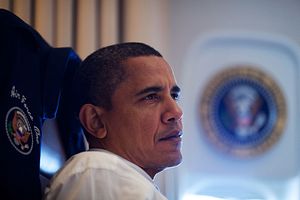As diligent Diplomat readers may be aware, the situation in the South China Sea is starting to heat up. The United States has started challenging China’s ongoing land reclamation activity in a bid to demonstrate that despite China’s actions, the sovereignty of the disputed reefs and islands, in the Spratlys and elsewhere, remains indeterminate. The United States’ use of aircraft and soon ships, if recent reports are accurate, is designed to support a particular interpretation of international law and how it applies in the South China Sea.* The United States purports to defend the freedom of navigation in a manner consistent with international law. In this context, the fact that the United States has not ratified the United Nations Convention on the Law of Sea (UNCLOS) is somewhat problematic.
To be sure, despite having never signed UNCLOS, U.S. policy and treatment of the maritime commons understands the U.N. treaty as a pillar of customary international law. This means that the United States behaves as if UNCLOS is the de facto international standard for maritime security. This is a good thing, but it doesn’t help strengthen the United States’ position on freedom of navigation and the much trickier questions of territorial sovereignty against China’s ongoing attempts to change the facts on the water. The current U.S. administration should make it a priority to see UNCLOS ratified before it leaves office in January 2017.
Politically, the time may be right for the White House to secure the necessary two-thirds majority necessary in the United States Senate to ratify the treaty. Concern about China’s assertiveness in its near seas appears to bear currency across the aisle, with both Democrats and Republicans seeing it as a primary problem. The administration should approach the issue of ratification from the angle of the U.S.-China relations, opting to avert a derailment of the debate on how UNCLOS impacts U.S. sovereignty. Indeed, between the first draft of the treaty in 1982 and its signing by President Bill Clinton in 1994, UNCLOS changed considerably, aligning itself with U.S. interests.
The good news is that both the Obama administration and senior U.S. military leaders recognize the urgency of UNCLOS ratification in bolstering the United States’ position in the Asia-Pacific. A year ago, Obama noted, “It’s a lot harder to call on China to resolve its maritime disputes under the Law of the Sea Convention when the United States Senate has refused to ratify it – despite the repeated insistence of our top military leaders that the treaty advances our national security.” Similarly, back in 2012, the U.S. Senate Committee on Foreign Relations called on six U.S. four-star generals and admirals to testify on the issue — they were unanimous in their support of U.S. ratification.
The optics of Chinese maritime assertiveness have grown more visible since 2012, and especially since last year. When Obama made his last major public push for ratification, China wasn’t actively pursuing what amounts to an attempt to bolster its claims to these disputed features within the rubric set out by UNCLOS. We’ve already seen that China may be the one thing that Senate Republicans find more distasteful than the current U.S. president, if the political alignments of the Trans-Pacific Partnership debate are anything to go by. The South China Sea issue, fortunately, is less dicey for Senate Democrats, who should be able to rally behind their president as well. With the exception of a few Tea Party and far-right anti-multilateralism holdouts, the months between now and January 2017 should finally permit an arrival at the long-sought two-thirds majority.
The administration should emphasize, above all, that whatever the perceived costs of UNCLOS ratification may be for the United States — limitations to naval operations, effective “taxation” of seabed mining, and exposure to international arbitration — they are far outweighed by the benefits of ratification. As the South China Sea flashpoint heats up and the United States begins altering its policy in response, the value of UNCLOS ratification increases.
* Per article 60 of UNCLOS:
Artificial islands, installations and structures and the safety zones around them may not be established where interference may be caused to the use of recognized sea lanes essential to international navigation.
Artificial islands, installations and structures do not possess the status of islands. They have no territorial sea of their own, and their presence does not affect the delimitation of the territorial sea, the exclusive economic zone or the continental shelf.
































